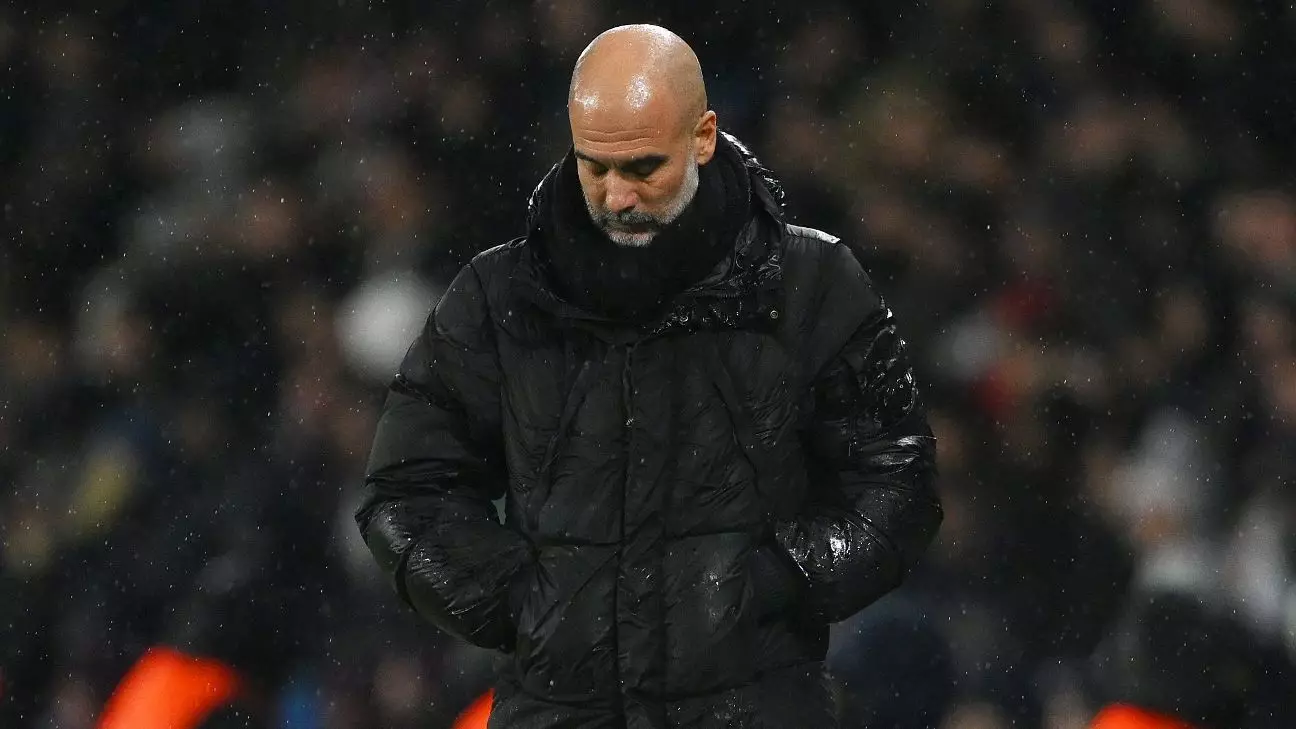The Champions League, a coveted title in European football, represents the pinnacle of achievement for many clubs, including Manchester City. With a robust squad and tactical genius in Pep Guardiola at the helm, City entered the 2023 season with aspirations of defending their title. However, following a staggering 4-2 defeat against Paris Saint-Germain (PSG), those dreams now hang by a thread. Guardiola’s post-match reflections provide crucial insights into the team’s struggles, revealing not only tactical deficiencies but also broader implications for the club’s ambitions.
Manchester City appeared poised for victory early in the match. After securing a 2-0 lead with impressive strikes from Jack Grealish and Erling Haaland, hopes ran high among City fans. Yet, the tides turned dramatically, echoing a familiar narrative where City, despite an initial advantage, lost control of the game. This defeat not only underscores City’s vulnerability but also highlights a worrying trend: for the ninth time this season, they relinquished a winning position. The transition from entitlement to embarrassment was swift, and it left Guardiola with a stark realization of his side’s shortcomings.
Following this setback, the stakes could not be higher. Guardiola articulated that City now faces a “last chance” to salvage their Champions League campaign against Club Brugge. The need for victory is paramount; a failure to secure a win would seal their fate, marking another early exit from the tournament. Guardiola’s response to the media reflected his acceptance of the gravity of the situation. By emphasizing that if City fails to progress, it is a reflection of their inadequacies rather than bad luck, he laid down the gauntlet for his players.
One of the critical issues highlighted by Guardiola was City’s inability to assert dominance in midfield against PSG’s dynamic setup. Despite creating some promising situations, the team faltered in executing their tactical plan effectively. The intense pressuring and high energy from PSG’s lineup exposed City’s vulnerabilities, particularly in dealing with transitions. Guardiola lamented that his side “could not cope” with the quick counter-attacks and the fluidity of PSG’s movement, showcasing a notable lack of cohesion that saw the team unable to maintain possession under pressure.
Also concerning is the psychological dimension of this defeat. Guardiola noted that his players struggled to bounce back after losing a two-goal lead, indicating a potential lack of resilience. In high-stakes matches, the mental fortitude of players often draws the line between victory and defeat. The ability of players like Bernardo Silva and Mateo Kovacic to link effectively is essential for City’s game plan. When that connection falters, as it did during this match, it translates into a collective state of anxiety on the field, disrupting the team’s play.
As City prepares for their must-win match against Chelsea, the key will be in their recovery and adaptation strategies. Guardiola’s insistence on focusing forward speaks to a strategy of resilience, emphasizing recovery rather than dwelling on past failures. The team’s future in the Champions League and its overall aspirations may depend significantly on their ability to regroup and reclaim their confidence against a formidable Chelsea side.
In the high-stakes environment of European football, adaptability is crucial. Guardiola’s acknowledgment of PSG’s superiority shines a light on the realities of his squad. With critical matches on the horizon, Manchester City must recalibrate. The challenge lies not only in tactical adjustments but in fostering a winning mentality that can withstand the pressures of elite competition. Their journey in the Champions League may well depend on embracing this challenge head-on, echoing Guardiola’s philosophy of constant improvement and evolution. The next match against Club Brugge will not only test their technical capabilities but will also serve as a litmus test for their psychological resilience as current champions.

